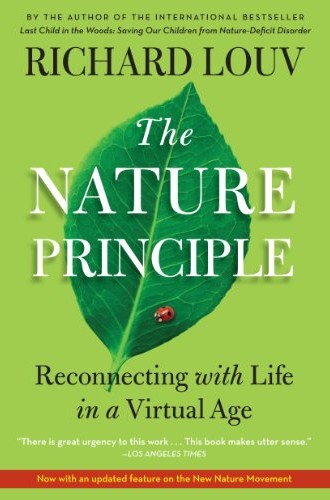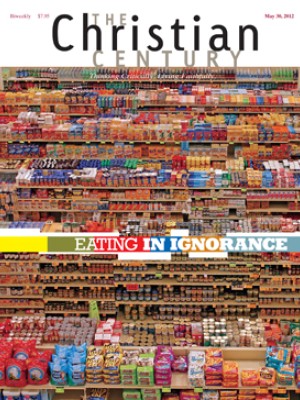The Nature Principle, by Richard Louv
When I was a kid, I spent my suburban summer days exploring the nooks and crannies of my backyard, roaming the woods with my siblings and friends and riding my bike on long expeditions. “Be home when the street lights come on,” was the general rule Mom gave us. The outdoors was our second home, where we played, lived and learned.
The way of life that I took for granted is gone.
“Children’s ability to roam has basically been destroyed,” wrote Microsoft senior researcher Danah Boyd in the New York Times earlier this year. “Letting your child out to bike around the neighborhood is seen as terrifying now, even though by all measures, life is safer for kids today.”
Read our latest issue or browse back issues.
In Last Child in the Woods: Saving Our Children from Nature-Deficit Disorder (2005), Richard Louv sounded an alarm over the loss of outdoor experiences for children. He tied attention disorders, obesity and depression to a lack of time outdoors. The book became an unlikely international bestseller and launched a renewed effort on the part of educators and parents to reintroduce children to nature. Louv clearly struck a nerve.
Not only children, however, need to be outdoors. In his latest book, The Nature Principle, Louv expands his premise to include adults. He believes that seven nature-based precepts can reshape our lives, including balancing technology with nature; achieving a mind/body/nature connection; incorporating biophilic design in our homes, communities and workplaces; and giving natural history more importance. “For the jaded and weary among us, the outdoor world can expand our senses and reignite a sense of awe and wonder not felt since we were children; it can support better health, enhanced creativity, new careers and business opportunities,” writes Louv. “Nature can help us feel fully alive.”
Adults need “vitamin N”—the mind/body/nature connection—for physical, emotional and family fitness, Louv contends. In a moving example, he recounts his own growing-up years and his family’s connections to the land. He then traces his family’s gradual disconnection from nature, which parallels his father’s spiraling depression and eventual suicide. “Which came first, the illness or the withdrawal from nature?” he writes. “I honestly don’t know. . . . Nature alone would not have cured him, but I have no doubt it would have helped.”
Louv calls for new ways of thinking about our environment, including rethinking the vocabulary we use. He points out that sustainability falls short of the relationship we should have with nature. After all, would we want a merely sustainable marriage? Our language should reflect the richer relationship with nature that we desire: “We need new or refreshed ways to describe a hybrid world in which technology and nature are balanced, in which we experience the deeper powers of nature in our everyday lives.”
He affirms and expands on how nature is essential for our mental and physical health—and our very souls. “It’s hard to fathom how any kind of spiritual intelligence is possible without an appreciation for nature,” Louv writes. “Most of us intuitively understand that all spiritual life, however it is defined, begins with and is nourished by a sense of wonder. The natural world is one of our most reliable windows into wonder and, at least to some, into a spiritual intelligence.”
I appreciate Louv’s emphasis on our need to have a sense of place, especially in a world where so much time is spent in virtual reality. He echoes the late Minnesota writer Paul Gruchow when he reminds us that knowing who we are requires knowing where we are. “As our lives grow more technological, media-dominated, and abstract, our hunger for a more authentic sense of personal and community identity will grow,” contends Louv.
Louv relies on stories and personal reflection as well as emerging research to make his points throughout the book. He sprinkles his own reflections among thoughts from Edward Abbey, E. O. Wilson, Aldo Leopold and others, and includes an extensive recommended reading list at the end of the book, with works from authors ranging from Diane Ackerman to Yi-Fu Tuan.
Although this solid, thoughtful book lacks some of the passion and energy of Last Child in the Woods, there is plenty for readers to chew on. Rather than strident, Louv’s voice is gently urgent. He invites us rather than guilting us into reconnecting with God’s restorative and ever-amazing creation. Read this and be inspired to take a dose of vitamin N.






